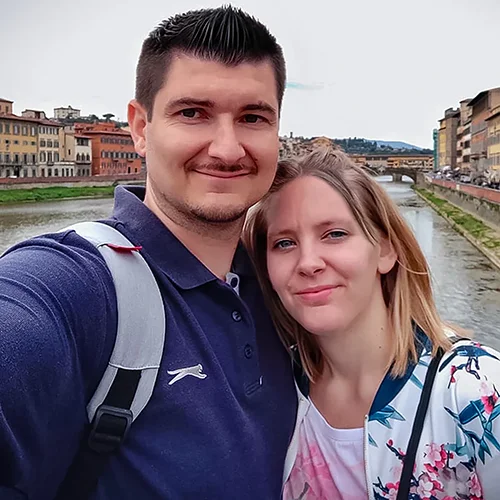Composting: Step-by-step instructions for beginners
Composting: Step-by-step instructions for beginners
Composting: Step-by-step instructions for beginners
Composting: Step-by-step instructions for beginners
17. Januar 2025
Feedback: 0
Do you want to make your garden more sustainable and reduce waste? Then composting is just the thing for you! With the right instructions, you can easily make your own nutrient-rich compost – whether you have a large garden or just a small balcony.
When we emigrated to Spain, we wanted to keep our sustainable habits from Germany – like composting. But in dry and hot regions like here, this quickly proved to be a challenge. With a few adjustments, we still managed to do it, and I’ll show you step by step how you can too.
1. Choose the Right Location
Germany
Choose a semi-shaded spot in your garden to ensure even decomposition. Direct sunlight can help, but too much moisture from frequent rain should be avoided.
Spain
Always place the composter in a shaded area, such as under a tree or on the north side of your house. Direct sunlight in hot regions can quickly dry out the compost.
2. Prepare the Base
Germany
Remove the grass from the selected spot and loosen the soil to allow worms and microorganisms to help break down the compost from below.
Spain
Prepare a similar base, but add a layer of coarse branches or stones. This helps improve air circulation, which is critical in hot conditions.
3. Set Up the Composter
Germany
A simple plastic composter or a homemade wooden frame works well. Make sure the composter has a lid to prevent excess moisture from rain.
Spain
A plastic composter is also suitable here. Alternatively, use an open wooden frame, but cover it with a tarp or jute mat to protect it from sunlight.
4. Collect and Layer Materials
Germany
Use a mix of “green” (wet) materials like kitchen scraps, grass clippings, and “brown” (dry) materials like leaves, branches, or cardboard. Aim for a 2:1 ratio (green to brown).
Spain
Ensure that green materials make up a larger proportion to counteract the dryness. Slightly moisten the waste before adding it, and layer it with dry materials like shredded cardboard or straw.
5. Control Moisture and Aeration
Germany
Moisture is usually balanced by the climate. The compost should feel like a wrung-out sponge. Turn the compost every few weeks to add oxygen.
Spain
Spray the compost regularly with water, especially during hot summer months. Avoid turning it too often, as this accelerates moisture evaporation. Once every two to three weeks is sufficient.
6. Use Composting Aids (Optional)
Germany
A compost starter from a store or a handful of finished compost can speed up decomposition. These aids are usually optional.
Spain
In dry and hot areas, a compost starter can be very helpful. Alternatively, consider the Bokashi method, where kitchen scraps are fermented in an airtight container. The fermented waste can then be added to the composter or buried directly in the soil.
7. Harvest Finished Compost
Germany
After 6–12 months (depending on the season), the compost is ready. It should be dark, crumbly, and have an earthy smell.
Spain
Due to the drier conditions, the process may take longer—up to 12–18 months. Patience is key, and regular moisture addition will speed up decomposition.
Conclusion: Similarities and Differences
While the basic steps are similar in Germany and Spain, composting in hot, dry regions requires additional measures like moisture management and sun protection. With proper preparation and care, you can produce high-quality compost in both countries that benefits your garden.

Wir sind zwei deutsche Auswanderer und auf emigres-life nehmen wir Dich mit auf unsere Reise in ein neues Leben.
In unserem Projekt schwingt das Pendel meist in Richtung stressig oder chaotisch und weniger in Richtung tiefenentspannt.
Wenn du also wissen willst, in welches Fettnäpfchen wir als nächstes treten oder welche Hürden vor uns liegen und wie wir sie überwinden, dann bleib dran.
Nächster Blogpost
Deposit System in Spain: An Ultimate Step Towards a More Sustainable Future

 Pin it!
Pin it!

